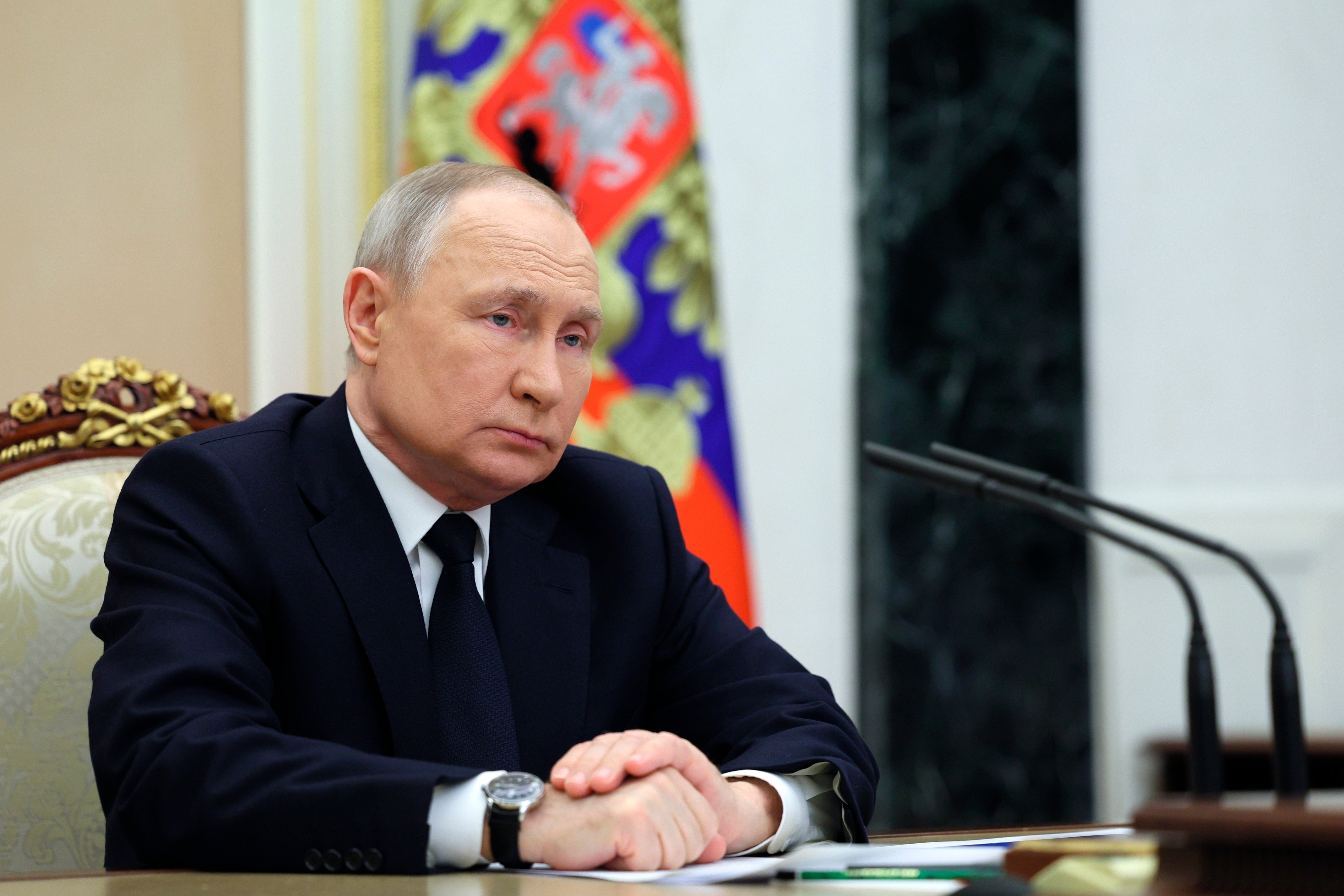Proof that Putin’s Ukraine invasion has spectacularly backfired
Finland’s membership of Nato will benefit both the alliance and Helsinki, writes Jamie Shea

Your support helps us to tell the story
From reproductive rights to climate change to Big Tech, The Independent is on the ground when the story is developing. Whether it's investigating the financials of Elon Musk's pro-Trump PAC or producing our latest documentary, 'The A Word', which shines a light on the American women fighting for reproductive rights, we know how important it is to parse out the facts from the messaging.
At such a critical moment in US history, we need reporters on the ground. Your donation allows us to keep sending journalists to speak to both sides of the story.
The Independent is trusted by Americans across the entire political spectrum. And unlike many other quality news outlets, we choose not to lock Americans out of our reporting and analysis with paywalls. We believe quality journalism should be available to everyone, paid for by those who can afford it.
Your support makes all the difference.Russia’s President Vladimir Putin will not be happy with Finland becoming the 31st member of Nato. The date is significant – 4 April – which marks the anniversary of the signing of the Nato treaty 74 years ago.
Yet Putin has only himself to blame for this most significant enlargement of the Western alliance in some time.
Before Putin invaded Ukraine last year, barely 30 per cent of Finns wanted their country to join Nato. Finland was largely comfortable with the dense network of security partnerships that it had devised since the end of the Cold War: close cooperation with Nato, participation in the EU’s common security and defence policy and military integration with its neighbour, Sweden, and the other Nordic partners.
Yet overnight public support for joining Nato shot up to around 80 per cent, and has stayed there ever since. Nato membership did not feature as an issue in last weekend’s Finnish elections despite the broad spectrum of parties participating. So, what has changed? Essentially two things.
First, Finnish security policy since the collapse of the Soviet Union in 1991 has rested on the assumption that Russia would accept the borders and new system of states that emerged from that collapse. Yet in annexing Crimea in 2014, and now seeking to annex more areas of Ukraine’s territory, Putin has made clear that all borders that are once part of the Czarist or Soviet system are open to revision. This has profoundly unsettled the Finns, who believed that they had a predictable if delicate relationship with Moscow.
Second, Putin’s invasion of Georgia in 2008, as well as supporting separatists in eastern Ukraine in 2014 and this current war, have shown Finns that close partnership with Nato does not provide an immediate Nato response or protection. Only full membership and the obligation of collective defence under Article 5 of the Nato treaty can do that. The EU has a solidarity clause, and is stepping up its cooperation on defence issues. Yet only Nato has the forward deployed troops, command structures and reinforcement plans to actually implement collective defence. As Finland suddenly needed to upgrade its defence, Nato was the only credible option.
Finland’s membership of Nato will benefit both sides. Nato will gain a capable military actor with seven armoured brigades, one of the best reserve forces in the alliance and modern weapons such as artillery, Leopard 2A6 tanks and soon US F35 fighter aircraft. With a border with Russia, the Finns never stopped taking their collective defence seriously even when the rest of Europe was reaping the peace dividend after the Cold War.
Of course, the sudden doubling of Nato’s borders with Russia as Finland takes its seat in the North Atlantic Council will give Nato a considerable extra security burden. Yet Putin knows that even if he has threatened unspecified retaliation measures against Helsinki, taking thousands of troops away from Ukraine to put them on the Finnish border will not help him to prevail against Kyiv. Moreover, Finland is not seeking to station large numbers of Nato troops on its territory at the moment, which would give Putin reason to act.
Finland joining Nato will be a bittersweet occasion for both Nato and Helsinki, given that both were hoping that Sweden would join at the same time. Turkey and Hungary are still holding up the parliamentary ratification of Swedish membership.
Yet Finland’s membership is probably of greater immediate strategic importance to Nato, given that it will give the allies greater access to the Baltic Sea and capacity to reinforce the Baltic States and Poland. Turkey will also move on Sweden after the Turkish elections on 14 May so that Stockholm can be hopeful of joining Nato at its next summit in Vilnius in July. At least for the time being, Stockholm will be comfortably sandwiched between Nato member states.
Jamie Shea is an associate fellow in the International Security Programme at Chatham House. He is a former Nato official and now professor of strategy and security at the University of Exeter



Join our commenting forum
Join thought-provoking conversations, follow other Independent readers and see their replies
Comments